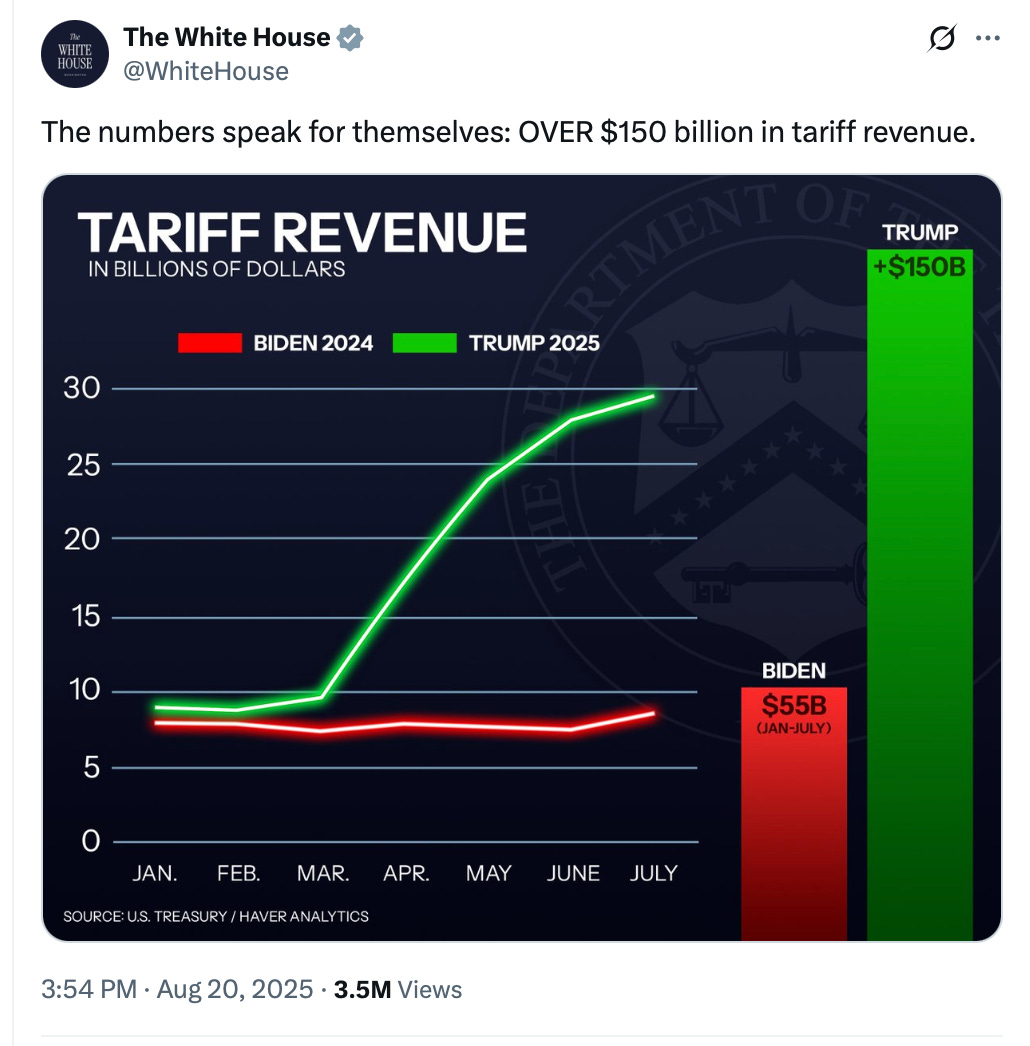When Donald Trump started threatening tariffs all over the place, everyone warned that meant things would get more expensive. And now, things are getting more expensive.
JVL hit on the little things—you know, food, energy, stuff that like—earlier in the week. But let’s get to what matters. Yesterday, Sony announced that PlayStations would cost $50 more per system:
The price for an entry-level PlayStation 5 Digital Edition will increase from $450 to $500, and a PlayStation 5 with a disc drive is going up to $550 from $500. Sony’s high-end PlayStation 5 Pro will cost $750, up from $700. …
President Donald Trump’s sweeping tariff plan announced in April went into effect earlier this month on most countries. The U.S. currently has a 30% tariff on imports from China, and higher tariffs on goods from the world’s second-largest economy are currently “paused,” according to the administration. Sony’s home country of Japan was hit with a 15% tariff.
Sony did not come out and explicitly say that this was a result of tariffs. But let’s do some math, shall we?
Weird! Don’t worry though: The White House is very excited that the federal government is collecting more of your money so it can continue funding the deep state!
It’s all good, though, young MAGAs. I’m sure that Sony will start building PlayStation 5s here in America any day now, providing plenty of great jobs for you so you can afford the systems. The video-game factories will start going up next week, undoubtedly.
On this week’s episode of The Bulwark Goes to Hollywood, I talked to Toby Huss, one of the stars of Weapons, the biggest movie in the country for two weeks in a row. We discussed that performance, as well as his turn in Tony Tost’s Americana and (very briefly) his work on the hit Fox/Hulu show, King of the Hill. I hope you give it a listen; Huss is one of our best character actors and every time he shows up in something—whether as a regular in a TV series like Halt and Catch Fire or Carnivale or The Adventures of Pete and Pete or as a one-off guy on Seinfeld or in a supporting role in a movie like Copshop or The Rental or Down Periscope—he makes it about 10 percent better.
I also want to pitch folks one more time on Huss’s photography book, American Sugargristle. I mention this on the pod, but I’ve had it on my desk for the last few months; anytime I hit a writing block or need to clear my head, I like to flip through it. It’s just a series of photos from the American byways, the side streets and open roads and strip malls and office complexes and rest stops that make up so much of the American experience. If you’ve ever spent some time really driving around America, you’ll recognize the common-yet-unique sights he captures, and he pairs all these pictures with little, fictionalized vignettes, snapshots of lives potentially lived. Not quite short stories, a bit more structured than poetry. It’s a purely American piece of artwork; you can imagine something similar coming from another country, but it would look different, sound different, feel different.
The Across the Movie Aisle crew didn’t love Nobody 2, sadly. And we don’t love the tax-rebate war roiling American film productions. Lot of not-love going around this week.
Across the Movie Aisle
‘Nobody 2’ Is Deadly, Dull
On this week’s episode, Sonny, Peter, and Alyssa discussed the problem of productions fleeing Georgia for other locales with bigger tax incentives. Then they reviewed Nobody 2, one of the rare films to, possibly, be a too-tight 90.
Americana is playing in a handful of theaters still, maybe you can track it down. It’s also available on VOD from Fandango at Home (formerly known as Vudu). Here’s the opening of my review, to give you a taste of what this modern western with a Tarantino-esque structure is all about:
Chronologically,1 Americana is bookended by Paul Walter Hauser’s Lefty Ledbetter delivering a wedding proposal. “People shouldn’t be alone. People should be happy,” he says, practicing his vows across from his diner waitress, Penny Jo (Sydney Sweeney). He’s a normal guy with a normal job who owns a normal house, but there is comfort in the familiar and happiness in comfort. He would like his bride-to-be to be his “happy wife.” He will be the “happy husband.” They will be happy together, no longer being alone in the wide open West.
Lefty, we learn, has delivered a version of this proposal four times this year to four different women.
Americana is a film about the pursuit of that last inalienable right promised to us by the Declaration of Independence, happiness, and the myriad forms it takes in the expansive openness of the United States. We are a nation of weird little pockets of people, all pursuing our own goals and dreams, hopes and desires; we are, on some level, an agglomeration of ideas and ideals picked up from around the world and generated at home. Pick your preferred culinary metaphor—melting pot or stew—the fire that keeps America bubbling is that desire for happiness and the lengths we will go to pursue it. If the western is the story America tells about itself, Americana depicts a moment in which we hunger for connection, sometimes from the wrong people and wrong places.






